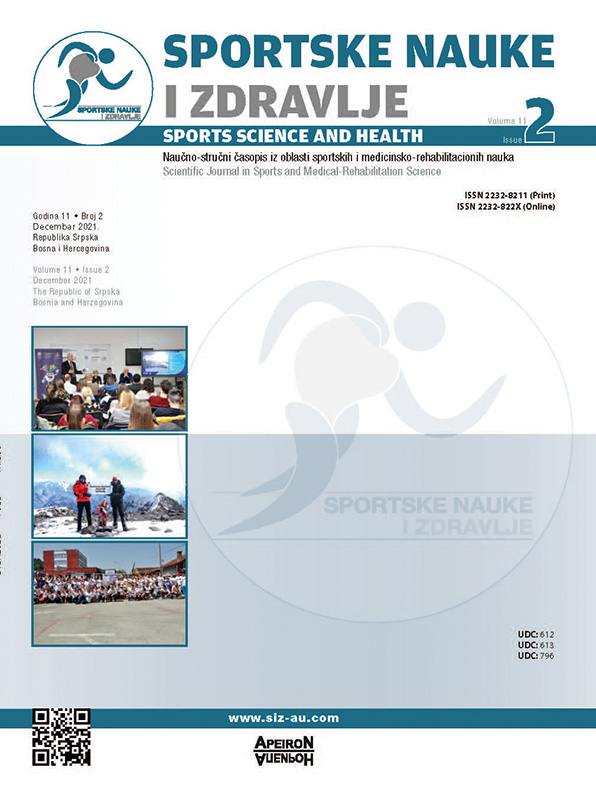Influence of Programmed Exercise on Body Composition Indicators of Recreational Exercisers
DOI:
https://doi.org/10.7251/SSH2102237SAbstract
This research was conducted in order to determine whether and what to extent the three-month fitness program affect changjes in body composition on a sample of 42 exercisers, recreational athletes, ages between 21 and 35. The measurement was performed using a Tanita scale, model BC-543, and the following variables were applied: body weight, muscle mass and percentage of fat.
After the initial measurement, a three-month fitness exercise program was applied, and then the final measurement in order to determine the achieved effects of training. Trainings were performed three times a week and were adjusted to each recreational athlete in proportion to the age and current state of training.
In the process of statistical data processing, descriptive and comparative statistics procedures were used. The basic statistical parameters for each subject were calculated individually and it was determined that there are statistically significant differences between the initial and final measurements.
